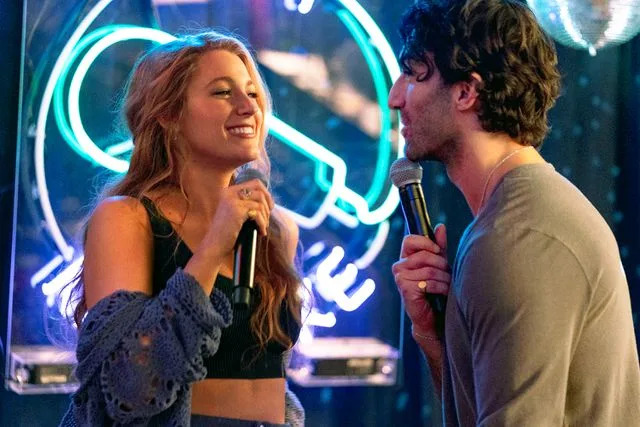Key Points
-
Taylor Swift will likely not be deposed in Blake Lively and Justin Baldoni’s legal battle.
-
The judge in the case rejected Baldoni’s request for a 30-day extension of the discovery cut-off date, likely ending his attempt to depose Swift.
-
Baldoni’s attorney had requested extra time to depose the singer, who he claimed was willing to appear for deposition, but her attorney said she did not agree to it.
Taylor Swift will has likely shaken off another legal headache.
A judge rejected It Ends With Us actor-director Justin Baldoni’s request to extend the deposition deadline in his legal battle with Blake Lively on Friday.
Baldoni’s attorneys made the request in order to have more time to depose the “Blank Space” singer, so the denial of their request means that Swift has little chance of seeing a deposition in the future.
In a four-page memo announcing his decision, which Entertainment Weekly has reviewed, Judge Lewis J. Liman explained his reasoning behind the ruling, noting that Baldoni’s attorneys requested to extend the discovery deadline on Thursday.
Liman wrote that Baldoni’s team attempted to justify their request by citing “Swift’s preexisting professional obligations” that “now prevent her from being deposed within the current discovery window” — that is, the Oct. 3 release of her next album, The Life of a Showgirl, means that she won’t be available to participate in a deposition until late October, while the current discovery deadline is Sept. 30.
As a result, Baldoni’s lawyers — who are also representing the filmmaker’s company Wayfarer Studios, which is also listed as a defendant in the case — requested that the discovery period be extended to the end of October.
Steph Chambers/Getty
Taylor Swift and Blake Lively at the 2024 Super Bowl
Baldoni’s request came in response to a previous request from Lively’s attorneys, who contend that they need 10 additional days for discovery because the Wayfarer team “belatedly produced large numbers of documents and have failed to produce others,” according to the judge.
Judge Liman ultimately ruled in Lively’s favor, granting her lawyers’ extension request and rejecting Baldoni’s Swift-centered request for more time.
“Lively has demonstrated good cause for her requested extension,” he wrote. “The Wayfarer Parties have only recently produced certain additional responsive documents — nearly 80,000 pages in total — and have failed to produce others entirely.”
Representatives for Swift, Baldoni, and Lively did not immediately respond to EW’s request for comment.
The judge also explained his denial of Baldoni’s request. “The Wayfarer Parties have not similarly demonstrated good cause for their requested extension,” he wrote. “The only justification they have provided for the extension is their assertion that Swift’s preexisting professional obligations now prevent her from appearing for a deposition prior to Oct. 20, 2025. Importantly, however, the Wayfarer Parties have provided no discussion of when they began attempting to schedule the deposition.”
Judge Liman also noted that Baldoni’s team attempted to subpoena Swift in May, then withdrew their subpoena. “They have offered no evidence that they have served a renewed subpoena on Swift,” he wrote. “Thus, at most, the Wayfarer Parties have demonstrated that scheduling the deposition now presents logistical difficulties; that does not answer the question of why the deposition ‘could not have been conducted earlier.’”
On Thursday, Baldoni’s lawyer Bryan Freedman claimed that Swift had “agreed to appear for deposition” in the case in his extension request.
However, Swift’s attorney J. Douglas Baldridge pushed back against that assertion, writing in a letter, “We have consistently maintained that my client has no material role in this action. Further, my client did not agree to a deposition, but if she is forced into a deposition, we advised (after first hearing about the deposition just three days ago) that her schedule would accommodate the time required during the week of Oct. 20 if the parties were able to work out their disputes. We take no role in those disputes.”
Meanwhile, Lively’s attorney Michael J. Gottlieb argued that the extension request from Baldoni’s team came as part of an attempt to “fuel their relentless media strategy” and suggested that “the Wayfarer Defendants do not appear to have contacted Ms. Swift’s counsel regarding a date or location about the deposition until earlier this week.” He also criticized the defense team for “lack of diligence, and disrespect for Ms. Swift’s privacy and schedule.”

Nicole Rivelli/Sony Pictures Entertainment
Blake Lively and Justin Baldoni in ‘It Ends With Us’
Lively first filed a complaint against Baldoni with the California Civil Rights Department in December, accusing the filmmaker of sexual harassment on the set of their recent movie, It Ends With Us, as well as coordinating a social media smear campaign to tarnish her reputation. She filed her lawsuit in New York shortly after, prompting Baldoni to respond with his own $400 million countersuit alleging defamation and extortion.
Baldoni also alleged that Swift and Lively’s husband, Ryan Reynolds, put pressure on him to accept an It Ends With Us rewrite from Lively, who served as a producer on the film.
Want more movie news? Sign up for Entertainment Weekly‘s free newsletter to get the latest trailers, celebrity interviews, film reviews, and more.
The Jane the Virgin star then subpoenaed Swift, prompting criticism from a spokesperson for the “Lover” singer. “Taylor Swift never set foot on the set of this movie, she was not involved in any casting or creative decisions, she did not score the film, she never saw an edit or made any notes on the film, [and] she did not even see It Ends With Us until weeks after its public release,” the spokesperson said at the time.
“The connection Taylor had to this film was permitting the use of one song, ‘My Tears Ricochet,’” the spokesperson continued. “Given that her involvement was licensing a song for the film, which 19 other artists also did, this document subpoena is designed to use Taylor Swift’s name to draw public interest by creating tabloid clickbait instead of focusing on the facts of the case.”
Baldoni’s team later withdrew the Swift subpoena, and Judge Liman subsequently threw out his countersuit in June.
The Lively-Baldoni case is scheduled to go to trial on March 9, 2026.
Read the original article on Entertainment Weekly
